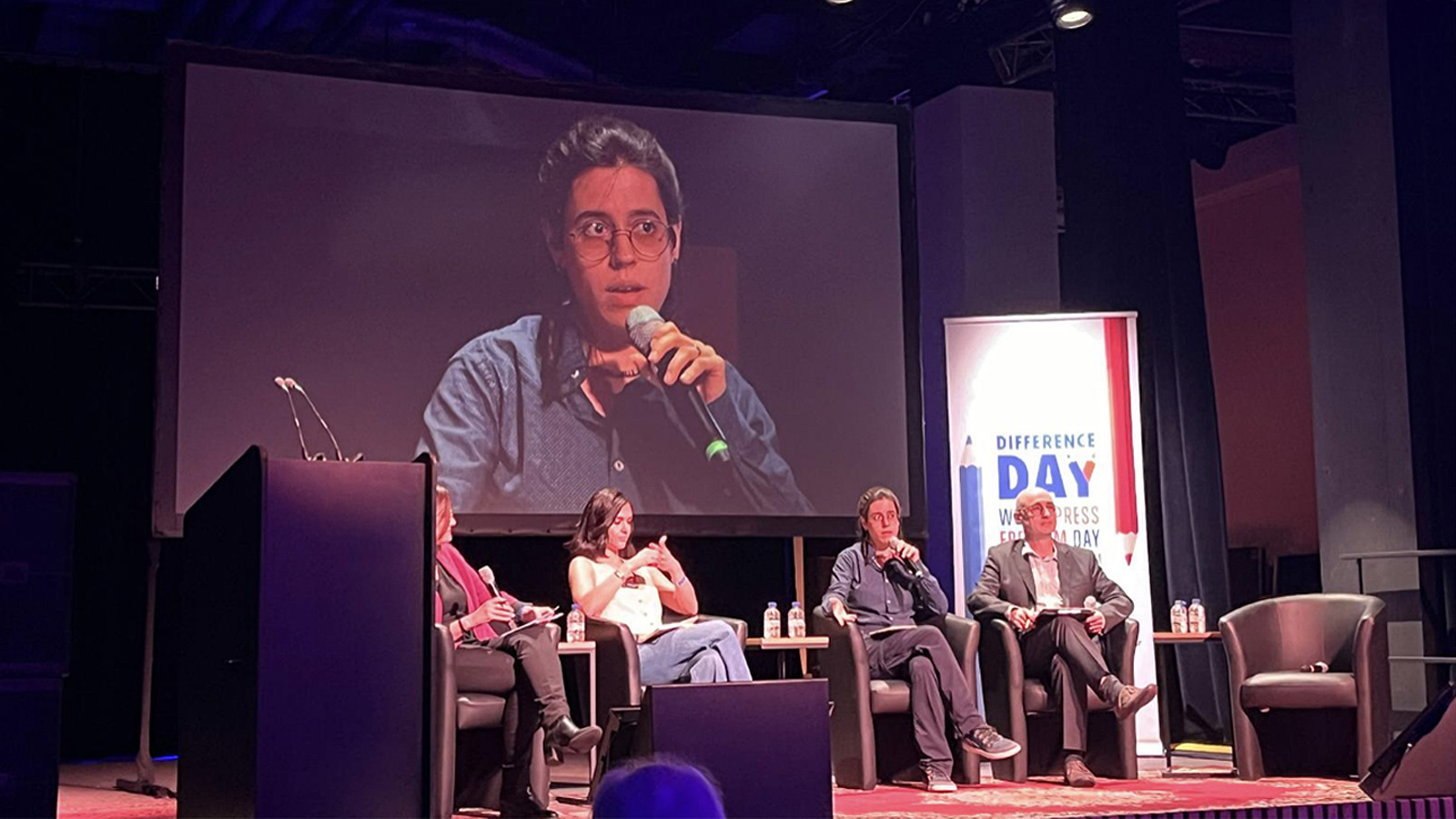On 3 May, EED marked World Press Freedom Day and participated in the ninth edition of Difference Day co-organised together with Vrije Universiteit Brussel, Université Libre de Bruxelles, Erasmushogeschool Brussel, BOZAR, UNESCO and other partners. The theme of Difference Day is: 'Speak Freely, Listen Respectfully, Different Opinions Matter':
Every year, Difference Day honours people, institutions and organisations defending freedom of expression. Difference Day also awards an Honorary Title to journalists who have distinguished themselves for their commitment to press freedom.
This year’s Difference Day Honorary Title laureates are Polish filmmaker Agnieszka Holland and the Israeli-Palestinian independent media +972 Magazine.
EED contributed to the organisation of two panels ‘Freedom of Expression and the Climate Crisis’ and ‘AI and Press Freedom’.
The speakers of the first session were environmental journalist Arthur Nelsen, DG Climate Action policy officer Sevim Aktas and EED partner environmental protection analyst Miroslava Nikolić from the Organization for Political Ecology Polekol.
Miroslava expressed the importance of encouraging solidarity in environmental activism by involving entire communities, including individuals who are less affected by issues like pollution. Connecting people around environmental issues is central to Polekol’s work in Serbia.
Miroslava also noted that it is essential to educate people on environmental issues and fight against climate disinformation. She explained that the main Serbian media outlets, which are privately owned and in line with the right-wing governing party, contribute to climate disinformation. Polekol rely on the research of scientists to support their advocacy work and to delve deeper into more complex environmental topics.
“It is important to collaborate with scientists to prove the legitimacy of our work. The fight for environmental justice is a very long one. If we don’t work together and tackle the issue from different sides, from the legal side, the media side, the research side, we won’t go far. We need to support each other to make effective change” she says.
The panel on Artificial Intelligence and Press Freedom gathered speakers Juliane Von Reppert-Bismarck, Executive Director of Lie Detectors and Serhii Prokopenko, Editor in Chief of EED partner Gwara Media.
Serhii spoke of the use of generative artificial intelligence to support Gwara Media in reporting from the frontlines of Kharkiv, Ukraine. He related that the team reflected on how to build digital resilience into their journalism and they developed a bot called Perevirka allowing users to assess the trustworthiness of news and social media content. This factchecking technology has enhanced the work of Gwara’s journalists making it more efficient and more attractive to young users.
While Serhii expressed an overall positive stance on AI’s contribution to journalism in the Ukrainian context, he also emphasised the importance of teaching media literacy and developing media policies on automatisation to encourage a regulated and responsible use of artificial intelligence.
